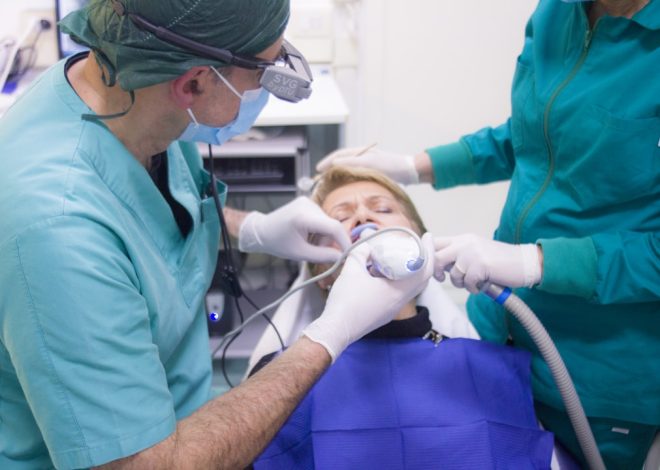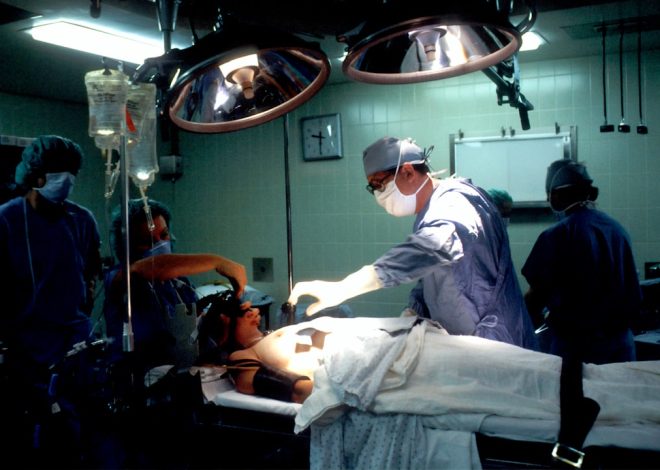
Restoring Your Smile with 6 Dental Implants
Dental implants are a revolutionary solution for individuals who have lost one or more teeth. They are designed to provide a strong foundation for replacement teeth that look, feel, and function like natural teeth. This is important not only for aesthetic reasons but also for the overall health and well-being of the individual. When a tooth is lost, the surrounding bone begins to deteriorate, which can lead to a sunken facial appearance and further dental issues. Dental implants help to prevent this bone loss and preserve the natural contours of the face. Additionally, they can improve the individual’s ability to eat, speak, and smile with confidence.
Dental implants are also important for maintaining the alignment of the remaining teeth. When a tooth is lost, the surrounding teeth can shift and cause bite problems. This can lead to further dental issues and discomfort. By replacing missing teeth with dental implants, the natural alignment of the teeth is preserved, which helps to maintain overall oral health. Furthermore, dental implants are a long-term solution for tooth loss, as they are designed to last a lifetime with proper care. This makes them a valuable investment in one’s oral health and quality of life.
Key Takeaways
- Dental implants are important for restoring the function and aesthetics of your smile, as well as preventing bone loss and maintaining overall oral health.
- Restoring your smile with 6 dental implants can provide benefits such as improved chewing ability, speech, and confidence, as well as preventing further dental issues.
- The process of getting 6 dental implants involves a thorough examination, implant placement, and a healing period before the final restoration is attached.
- Recovery and aftercare for 6 dental implants include following post-operative instructions, maintaining good oral hygiene, and attending regular follow-up appointments with your dentist.
- Potential risks and complications of 6 dental implants may include infection, nerve damage, implant failure, and sinus issues, but these can be minimized with proper care and regular dental check-ups.
- Maintaining and caring for your dental implants involves brushing and flossing regularly, avoiding hard foods, and visiting your dentist for professional cleanings and check-ups.
- The cost of restoring your smile with 6 dental implants can vary depending on factors such as the location of the dental practice, the materials used, and any additional procedures that may be required.
The Benefits of Restoring Your Smile with 6 Dental Implants
Restoring your smile with 6 dental implants offers a multitude of benefits that go beyond just aesthetics. One of the key benefits is improved chewing and speaking ability. With 6 dental implants, individuals can enjoy a strong and stable foundation for their replacement teeth, allowing them to eat a wide variety of foods without discomfort or difficulty. This can significantly improve their overall nutrition and quality of life. Additionally, dental implants can enhance the clarity of speech, as they provide a secure base for the replacement teeth, preventing any slippage or mumbling.
Another significant benefit of restoring your smile with 6 dental implants is the preservation of bone structure. When multiple teeth are missing, the jawbone can begin to deteriorate, leading to a sunken facial appearance and potential oral health issues. Dental implants help to stimulate the bone and prevent further bone loss, preserving the natural contours of the face and maintaining overall oral health. Furthermore, dental implants can boost self-confidence and self-esteem by providing a natural-looking and permanent solution for missing teeth. This can have a positive impact on an individual’s social and professional life, as they can smile and interact with others without feeling self-conscious about their teeth.
The Process of Getting 6 Dental Implants
The process of getting 6 dental implants typically involves several stages and requires the expertise of a skilled dental professional. The first step is a comprehensive examination and consultation, during which the dentist will assess the individual’s oral health and determine if they are a suitable candidate for dental implants. This may involve X-rays, 3D imaging, and impressions of the teeth and jaw to create a customized treatment plan.
Once the treatment plan is established, the next step is the surgical placement of the dental implants into the jawbone. This is typically done under local anesthesia to ensure the comfort of the patient. The dentist will carefully position the implants in the jawbone, allowing them to fuse with the bone over time. After the implants are placed, there is a healing period during which the bone will grow around the implants in a process called osseointegration.
Once the implants have fully integrated with the bone, the next stage involves attaching abutments to the implants. These abutments serve as connectors between the implants and the replacement teeth. Finally, custom-made replacement teeth are attached to the abutments, completing the restoration of the smile with 6 dental implants.
Recovery and Aftercare for 6 Dental Implants
| Recovery and Aftercare for 6 Dental Implants |
|---|
| 1. Follow post-operative instructions provided by the dentist |
| 2. Take prescribed medications as directed |
| 3. Avoid smoking and alcohol during the recovery period |
| 4. Maintain good oral hygiene by gently brushing and flossing |
| 5. Attend follow-up appointments with the dentist |
| 6. Eat soft foods and avoid hard or sticky foods |
After the surgical placement of 6 dental implants, it is important for individuals to follow proper aftercare instructions to ensure a smooth recovery and successful outcome. In the days following the surgery, it is normal to experience some discomfort, swelling, and minor bleeding. Pain medication and ice packs can help alleviate these symptoms. It is also important to stick to a soft diet and avoid strenuous physical activity during the initial healing period.
Good oral hygiene is crucial for the long-term success of dental implants. It is important to gently brush and floss around the implant sites to keep them clean and free from plaque buildup. Regular dental check-ups and cleanings are also essential to monitor the health of the implants and ensure that they are functioning properly.
In addition to proper oral hygiene, it is important for individuals with 6 dental implants to avoid habits that can compromise their oral health, such as smoking and excessive alcohol consumption. These habits can increase the risk of implant failure and should be avoided for optimal results.
Potential Risks and Complications of 6 Dental Implants
While dental implants are considered a safe and effective treatment for tooth loss, there are potential risks and complications that individuals should be aware of. One common risk is infection at the implant site, which can occur if proper oral hygiene is not maintained or if there are underlying health issues that affect healing. In some cases, the implant may not integrate with the bone properly, leading to implant failure. This can be caused by factors such as poor bone quality or quantity, smoking, or uncontrolled diabetes.
Another potential complication of 6 dental implants is damage to surrounding structures such as nerves or blood vessels during the surgical placement of the implants. This can lead to numbness or tingling in the mouth or face, which may be temporary or permanent depending on the severity of the damage.
It is important for individuals considering 6 dental implants to discuss these potential risks with their dental professional and ensure that they are well-informed about the procedure before making a decision.
Maintaining and Caring for Your Dental Implants

Proper maintenance and care are essential for ensuring the long-term success of 6 dental implants. Good oral hygiene practices, including regular brushing and flossing, are crucial for keeping the implant sites clean and free from plaque buildup. It is also important to attend regular dental check-ups and cleanings to monitor the health of the implants and address any issues early on.
In addition to good oral hygiene, it is important for individuals with 6 dental implants to avoid habits that can compromise their oral health, such as smoking and excessive alcohol consumption. These habits can increase the risk of implant failure and should be avoided for optimal results.
Furthermore, individuals with dental implants should be mindful of their diet and avoid chewing on hard foods or using their teeth as tools to prevent damage to the implants. By following these guidelines and maintaining a healthy lifestyle, individuals can enjoy their restored smile with 6 dental implants for many years to come.
The Cost of Restoring Your Smile with 6 Dental Implants
The cost of restoring your smile with 6 dental implants can vary depending on several factors, including the location of the dental practice, the expertise of the dental professional, and any additional treatments that may be required. On average, the cost of a single dental implant can range from $1,500 to $6,000, meaning that restoring your smile with 6 dental implants can be a significant investment.
It is important for individuals considering 6 dental implants to discuss their treatment plan with their dental professional and inquire about any financing options that may be available. Some dental practices offer payment plans or financing options to help make dental implant treatment more affordable for their patients.
While the initial cost of 6 dental implants may seem high, it is important to consider the long-term benefits and value that they provide. Dental implants are designed to last a lifetime with proper care, making them a worthwhile investment in one’s oral health and quality of life. By restoring your smile with 6 dental implants, you can enjoy a natural-looking and permanent solution for missing teeth that can improve your overall well-being for years to come.
If you’re considering getting dental implants, you may also be interested in learning about the latest advancements in wound closure technology. Check out this article on revolutionizing wound closure with skin stapler to see how medical technology is constantly evolving to improve patient outcomes.
FAQs
What are all on 6 dental implants?
All on 6 dental implants are a type of full-arch dental restoration that uses six dental implants to support a fixed prosthesis. This treatment is used to replace a full set of upper or lower teeth.
How do all on 6 dental implants differ from traditional dentures?
All on 6 dental implants differ from traditional dentures in that they are fixed in place and do not require removal for cleaning or maintenance. They also provide a more natural look and feel compared to traditional dentures.
What are the benefits of all on 6 dental implants?
The benefits of all on 6 dental implants include improved chewing and speaking ability, a natural-looking smile, and increased comfort compared to traditional dentures. They also help preserve bone density in the jaw and provide long-term durability.
Who is a good candidate for all on 6 dental implants?
Good candidates for all on 6 dental implants are individuals who are missing a full set of upper or lower teeth and have sufficient bone density to support the implants. They should also be in good overall health and have realistic expectations about the procedure.
What is the success rate of all on 6 dental implants?
The success rate of all on 6 dental implants is high, with studies showing a success rate of over 95% after 10 years. Proper oral hygiene and regular dental check-ups are important for maintaining the longevity of the implants.
What is the recovery process like after getting all on 6 dental implants?
The recovery process after getting all on 6 dental implants typically involves some initial discomfort and swelling, which can be managed with pain medication and a soft diet. It is important to follow post-operative care instructions provided by the dental team to ensure proper healing.


